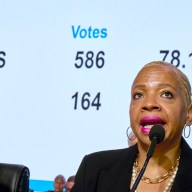Consumer watchdogs yesterday rolled out the top 10 scams in the Lower Mainland for 2009, as follows:
1 Topping the list were health-care scams like bogus cancer and diabetes cures and pills for weight loss.
The Internet became flooded with hundreds of websites offering vaccine and Tamiflu within hours of the World Health Organization first announcing the H1N1 flu.
“These people prey on people’s emotion,” said Lynda Pasacreta, president and CEO of the Better Business Bureau of the Lower Mainland.
“There’s a hurt in the marketplace. People are panicking about getting H1N1 and are buying stuff online.”
2 Signing up for so-called “free” online trials for items like acne cream and teeth whitener can end up with the victim being billed automatically and repeatedly.
3 Identification theft can result from information phishing in the form of “scareware” pop-ups that say your computer is infected with a virus or legitimate-looking emails that ask you to update your information.
4 Home-repair ripoffs, like phoney reports your furnace is leaking carbon monoxide and needs to be replaced immediately.
5 Loan offers for people with bad credit to keep afloat through lean economic times could result in huge financial losses and even ID theft.
6 Free grants from the Canadian government that are advertised online could be a mass-marketing scheme that costs you money to participate.
7 Investment opportunities requiring you to recruit others that are actually pyramid schemes.
8 Cash-back fraud when selling things such as automobiles. The buyer will send you a larger cheque by “mistake” and then ask for the balance in a money transfer. The cheque will bounce a few days later.
9 Unexplained charges on your cellphone could be due to premium text messages that people unknowingly sign up for when they play online games or take online IQ tests.
10 Mystery shopping jobs requiring you to shop via wire-transfer service. Be wary of mystery shopper ads that require you to pay money up front.
















